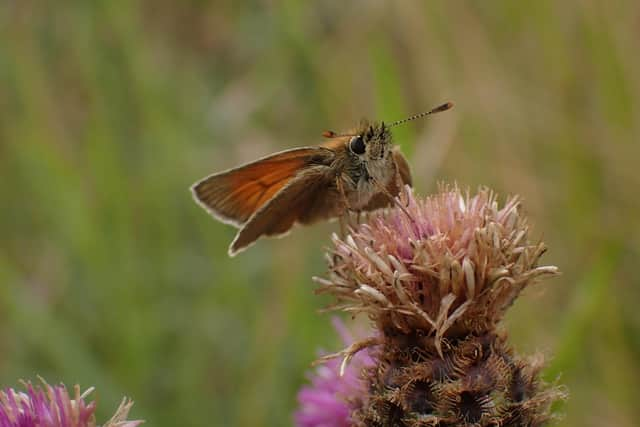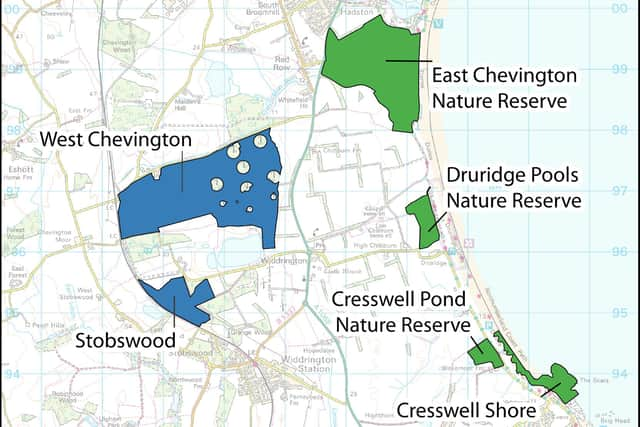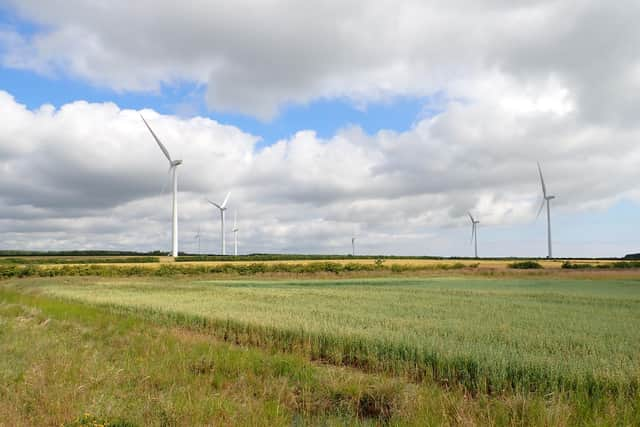Northumberland site to be transformed into haven for wildlife thanks to £2 million donation
and live on Freeview channel 276
The funding from The Reece Foundation has enabled Northumberland Wildlife Trust to purchase a 327-hectare piece of land at Druridge Bay.
The site at West Chevington was acquired from regeneration specialist Harworth Group and will become one of the most ambitious lowland rewilding projects in the north of England.
Advertisement
Hide AdAdvertisement
Hide AdPlans include expansion of the existing broadleaf woodlands to store more carbon, reduce carbon emissions, and improve air quality.


The site will also see the creation and restoration of wildflower meadows and grasslands to boost pollinators including bees and butterflies.
Wetlands and watercourses will also be developed to improve water quality and reduce flooding downstream, along with the enhancement of ponds with reed beds to encourage birds and other species.
Also included in the plans is the encouragement of scrub and more broadleaf trees and the re-introduction of species such as water voles and harvest mice, to complement the nearby harvest mice population at East Chevington Nature Reserve.
Advertisement
Hide AdAdvertisement
Hide AdThe Trust will join forces with the Flexigraze conservation-grazing scheme and introduce extensive targeted cattle grazing on the rough grassland.


Northumberland Wildlife Trust has long held a vision to develop a large network of sites for wildlife in the Druridge Bay area.
Mike Pratt, Trust chief executive said: “This is an amazing opportunity to restore a key area of Northumberland’s lowlands, inland, from Druridge Bay, potentially making the whole area much wilder and restoring nature at scale, delivering multiple benefits for nature, people and climate.
“We are enormously thankful for the vision and generous commitment of the Reece Foundation in making this happen and we hope our supporters and the public generally will now help us with the transformation plans to make such a big difference and impact.
Advertisement
Hide AdAdvertisement
Hide Ad“Over the next five, 10 and many more decades, we will bring about a natural regeneration of woodland and scrub, restore farmed land and promote diverse grasslands and wetlands that support a huge variety of wildlife.


“Nature will recover and flourish, rather than decline, something we will all be very proud of being part of and which will contribute positively to people’s lives and the local economy.”
Conservation officer Alice McCourt, who has been involved in the West Chevington project since the start, added: “The site has enormous potential for the restoration of nature and natural processes, but it also already has a lot of wildlife interest.
“Visits last summer revealed a thriving butterfly population, with a staggering number of skippers to be found in the grasslands on site. The wetter areas also already support rare and declining breeding waders, including lapwing.
Advertisement
Hide AdAdvertisement
Hide Ad“We’re all really excited to follow the development of the site over the next 10 to 20 years, and see it realise its full potential.”
The Trust still needs to raise additional funds to help it develop and manage the site. Anybody wishing to support the work can do so via its 30 by 30-public appeal which is aimed at helping the charity put nature back into recovery in the region. Visit www.nwt.org.uk/30by30